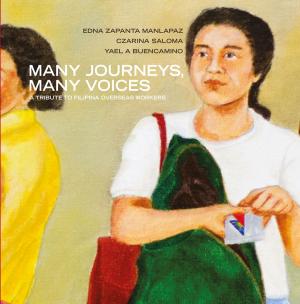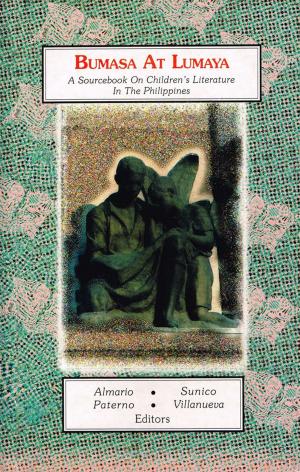| Author: | Alfred A. Yuson | ISBN: | 9786214201259 |
| Publisher: | Anvil Publishing, Inc. | Publication: | December 15, 2009 |
| Imprint: | Language: | English |
| Author: | Alfred A. Yuson |
| ISBN: | 9786214201259 |
| Publisher: | Anvil Publishing, Inc. |
| Publication: | December 15, 2009 |
| Imprint: | |
| Language: | English |
An earlier manuscript titled The Music Child was shortlisted for the Man Asia Literary Prize in 2008. Alfred A. Yuson’s previous novels are Great Philippine Jungle Energy Café and Voyeurs & Savages.
Again, this third novel explores the marvels skirting the boundaries of realism, or goes much farther beyond after establishing adequate suspension of disbelief. Genres are blurred in the crafting of long fiction that is both poetry and prophecy. This the author does with visionary whimsy.
In this narrative, the central protagonist’s wondrous voice is stilled time and again by the deaths of his loved ones. Bereft of song, the boy finally learns to speak, then learns to turn the words of others into music on paper. The processes of mimicry and extrapolation result in an extended poetic suite that invents legends as well as a mythical conflict involving the imperialism of languages.
The music child’s extraordinary talents are matched by those of the young mahjong queen who can’t be beaten in the game since the angels of her youth speak through her fingers.
Around them, foreign friends and relations representing former colonizers provide a framework of discovery, while themselves dancing to the historic chorus of destiny in the magical East.
The music child and the mahjong queen endear themselves to one another through the palpable vocabulary of flowers.
An earlier manuscript titled The Music Child was shortlisted for the Man Asia Literary Prize in 2008. Alfred A. Yuson’s previous novels are Great Philippine Jungle Energy Café and Voyeurs & Savages.
Again, this third novel explores the marvels skirting the boundaries of realism, or goes much farther beyond after establishing adequate suspension of disbelief. Genres are blurred in the crafting of long fiction that is both poetry and prophecy. This the author does with visionary whimsy.
In this narrative, the central protagonist’s wondrous voice is stilled time and again by the deaths of his loved ones. Bereft of song, the boy finally learns to speak, then learns to turn the words of others into music on paper. The processes of mimicry and extrapolation result in an extended poetic suite that invents legends as well as a mythical conflict involving the imperialism of languages.
The music child’s extraordinary talents are matched by those of the young mahjong queen who can’t be beaten in the game since the angels of her youth speak through her fingers.
Around them, foreign friends and relations representing former colonizers provide a framework of discovery, while themselves dancing to the historic chorus of destiny in the magical East.
The music child and the mahjong queen endear themselves to one another through the palpable vocabulary of flowers.



![Cover of the book HAI[NA]KU and Other Poems by Alfred A. Yuson](https://www.kuoky.com/images/2009/december/300x300/9789712733178-kMYd_300x.jpg)











